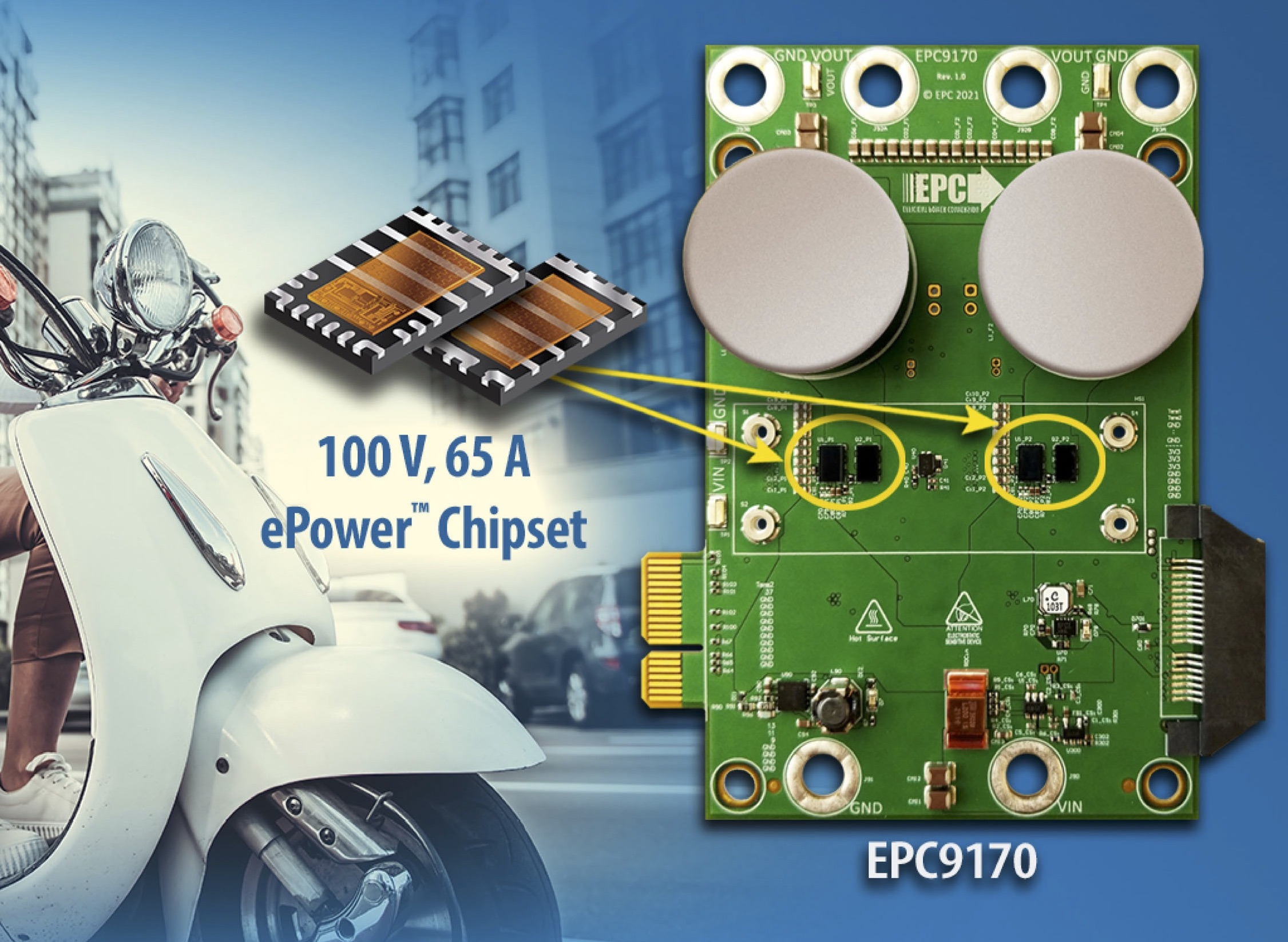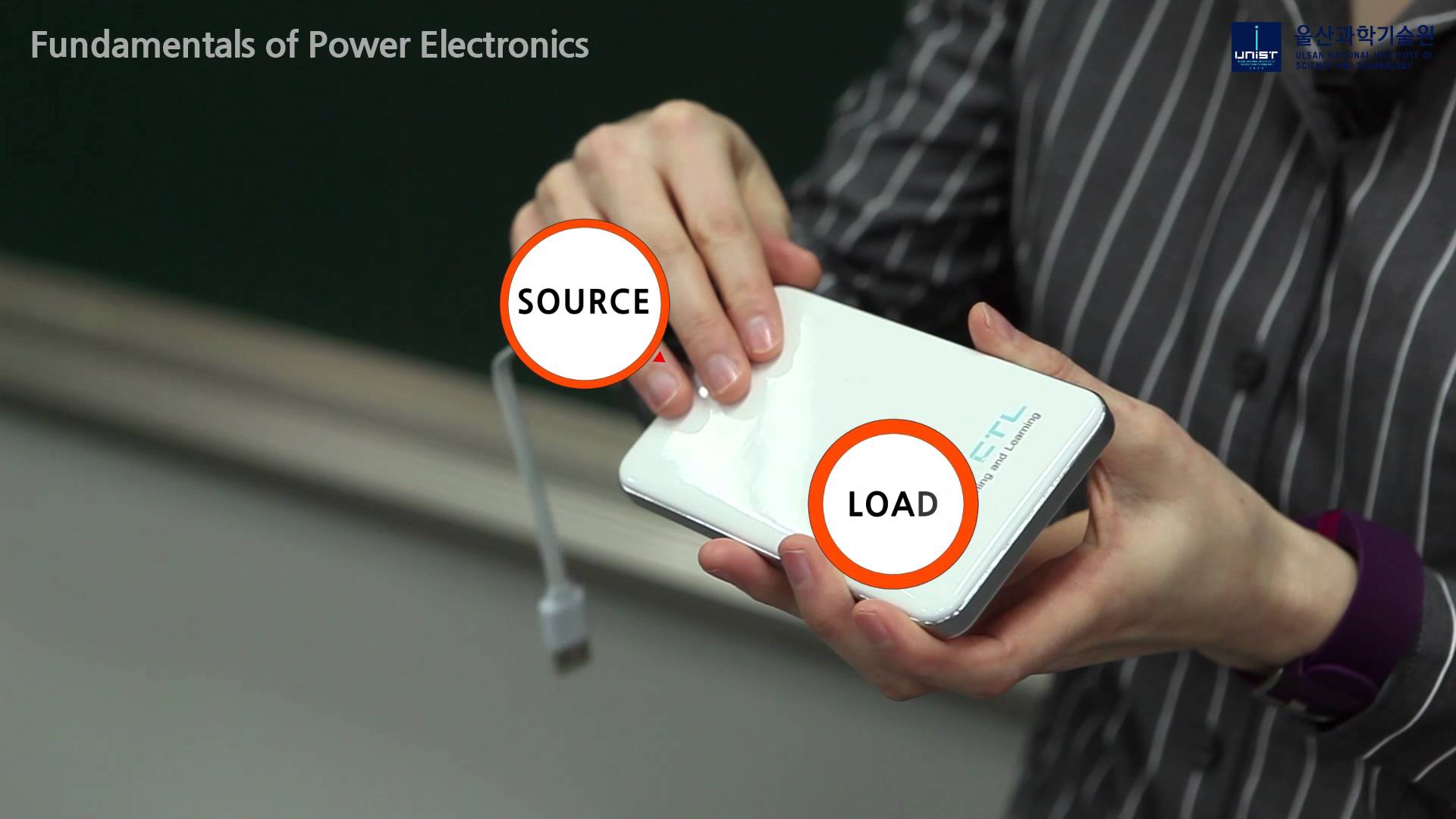EPC announces 2kW 48V-14V GaN-based converter

Two-phase bidirectional converter board has 96.8 percent peak efficiency
EPC has announced the EPC9170, a 2 kW, two-phase 48 V – 14 V bidirectional converter board that operates with 96.8 percent peak efficiency in a small footprint.
The board features the ePower 100V, 65 A integrated circuit chipset. The chipset includes the EPC23101 eGaN IC plus EPC2302 eGaN FET for a solution capable of a maximum withstand voltage of 100 V, delivering up to 65 A load current, while capable of switching speeds greater than 1 MHz.
The fast-switching speed and low losses of the GaN devices allow the converter to operate at 500 kHz, which significantly reduces the size of the solution, and exceeds 96.5 percent efficiency between 60 A and 110 A with 95.8 percent efficiency at 140 A.
Key features of the EPC23101 integrated circuit used on the EPC9170 include integrated high-side FET with 3.3 mOhm max RDS(on) with gate driver, input logic interface, level shifting, bootstrap charging, gate drive buffer circuits and gate driver output to drive external low-side eGaN FET. The integration of the driver further simplifies the design and reduces parasitics.
The EPC2302 eGaN FET, featured on the EPC9170, offers a typical RDS(on), of just 1.4 mOhm, together with very small QG, QGD, and QOSS parameters for low conduction and switching losses.
Both the EPC23101 and EPC2302 feature a thermally enhanced QFN package with exposed top with optimized pinout between the two devices. The combined chipset footprint is 7 mm x 5 mm, offering an extremely small solution size for the highest power density applications.
“eGaN FETs and ICs provide the fast switching, small size, and high efficiency needed to further reduce the size and weight of 48 V to 12 V and 14 V converters,” said Alex Lidow, CEO of EPC. “The EPC9170 is an ideal example of the capabilities of the new ePower Chipset to increase frequency and efficiency to allow smaller inductance for less phases and higher power density in space and weight critical designs.”



































